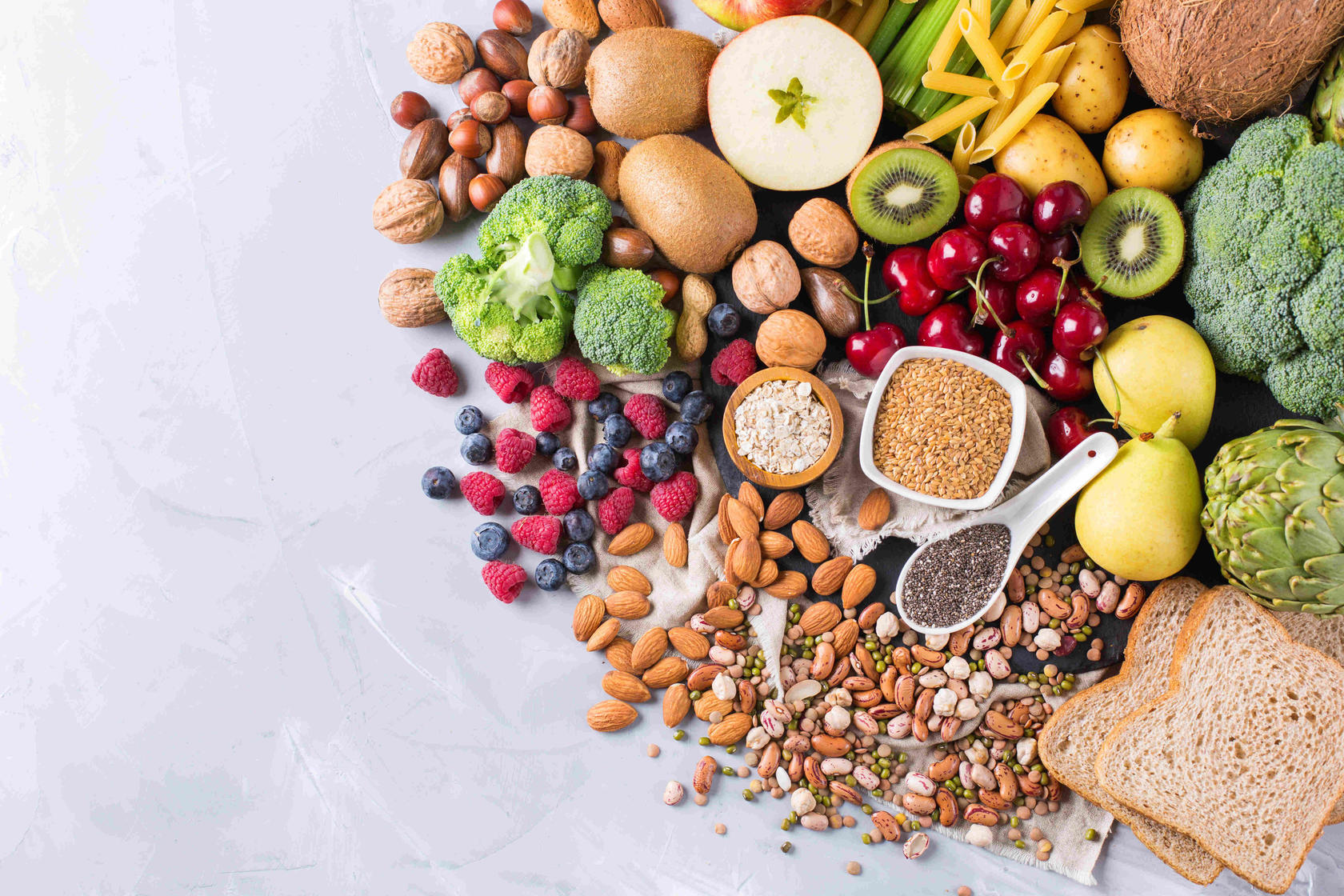Fibre is a type of carbohydrate that the human body cannot digest or absorb. Instead, fibre passes relatively intact through the digestive system and helps to regulate digestion and promote overall health.
There are two types of fibre, soluble and insoluble. Soluble fibre dissolves in water and forms a gel or a paste within the digestive tract. This then slows down the rate that food passes through the small intestine which increases the rate of absorption of nutrients. Examples of soluble fibre include fruit, vegetables, oats, barley and legumes. Insoluble fibre does not dissolve in water, and tends to absorb water to support regular bowel movements. Insoluble fibre absorbs and removes toxins which contribute to healthy functioning of the digestive tract. Examples of insoluble fibre are wholegrains, nuts, seeds, skin of fruit and vegetables.
The benefits of fibre:
- Promotes digestive health: Insoluble fibre adds bulk to stools which helps with regular bowel movements.
- Regulates blood sugar levels: Soluble fibre can slow down the absorption of sugar into the bloodstream, which can help to regulate blood sugar levels.
- Lowers cholesterol levels: Soluble fibre can bind to LDL cholesterol in the digestive system and help remove it from the body which can lower blood cholesterol levels.
- Can assist with weight management: High fibre foods tend to be highly satiating which in turn can help reduce overall calorie intake. Fibre can also slow down the emptying of the stomach which can lead to feelings of fullness.
- Reduces risk of certain diseases: Eating a high fibre diet has been linked to reduced risk of heart disease, stroke, diabetes and certain cancers.
We recommend aiming for 13-15 g of fibre per 1000 calories consumed. While fibre is a crucial part of a balanced diet, like everything it needs to be consumed in moderation. Too much fibre can have an opposite effect and cause gastrointestinal upset therefore we recommend monitoring your intake to keep it in the above range. Unsure if you are getting enough fibre? Book a nutrition consult with one of our trainers to set up a customised plan.

